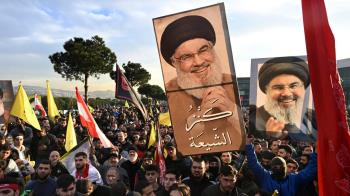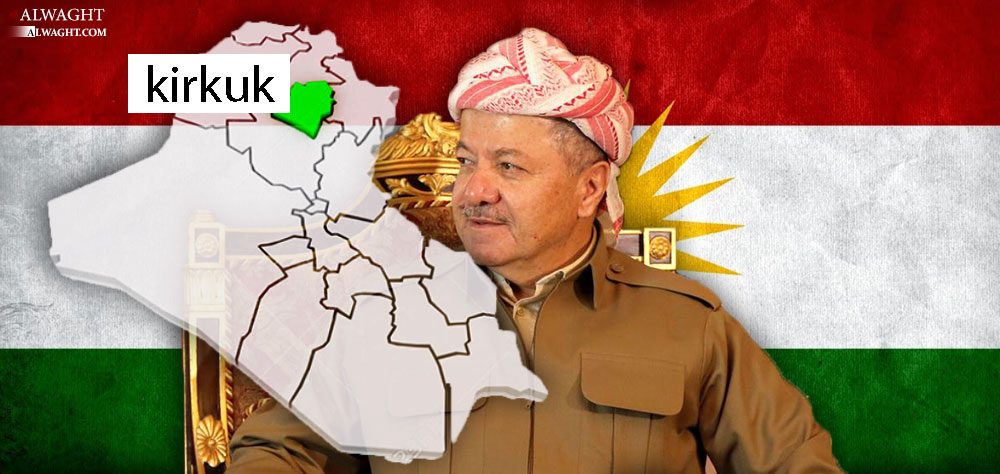Alwaght- On August 30, Kirkuk provincial council voted in favor of participation in Kurdish independence referendum set for September 25, once again stirring rejuvenated disputes among the country’s various political sides over the northern Iraqi province.
In course of the past years and particularly after the new developments in Iraq that were mainly caused by rise of ISIS terrorist group, the President of Kurdistan Regional Government (KRG) Masoud Barzani and other Kurdish leaders insisted that the oil-rich province of belong to Kurdistan region and Erbil had no plans for negotiating the case with Baghdad, calling the northern province the inseparable part of territories under control of the KRG.
Reports suggest that the Kurdish regions is preparing plans to make decisions on administration of the disputed province to finalize annexation of resource-rich Kirkuk to its territory along with holding the independence referendum in less than a month from now.
Various Iraqi parties have been vocal in their opposition to the secessionist agenda of the Kurdish leaders, accentuating their stance that Kirkuk is and will remain an unquestionably Iraqi province.
Additionally, the special conditions of Kirkuk at the time being do not allow for a force or political side to impose its political aspirations on it.
To Konw what are the roots of the Iraqi political sides’ sensitivity to any plans by the Kurds to annex the province we must consider three main point:
Kirkuk's geo-economic and historical significance
Since foundation of the modern Iraqi state in 1921, Kirkuk has been one of the most important provinces of the country certainly on the strength of digging first oil well of Iraq in it.
The rich oil reserves made the British contractors and politicians interested in Kirkuk, pusheing them to closely watch the string of events in the northern region. Even now and after years of pumping oil out of Kirkuk ground, the province remains holder of the second largest oil reserves in the country after Rumaila oilfield in Basra province. Reports suggest that the disputed province has oil reserves of over 10 billion barrels. Kurdish leaders even boast of Kirkuk having “7.5 percent of the world's total oil reserves.”
This oil richness plays as a strong drive for the Kurdish region to strive after adding Kirkuk to its territory, a move that if succeeds can provide the KRG with financial resources enough to contribute to its separation process. But the Kurds have ahead the other Iraqi parties that are almost united in their opposition to split of the country, and argue that all Iraqis must benefit from Kirkuk’s oil resources as the country’s undetectable wealth. In fact, the Iraqi government puts premium on Kirkuk oil for its geo-economic importance and thus cannot simply turn a blind eye to its seizure by the autonomous Kurdistan region.
Kirkuk’s demographic, identity significance
Another issue complicating the dispute over Kirkuk is its demographic structure and struggle over its identity property. The province for a long time has been an icon of peaceful coexistence of a diversity of ethnic groups. It is home to Kurds, Turkmens, Arabs, Assyrians, Chaldeans, Christians, and even Jews. This demographic intricacy makes each of these ethnic groups to claim they are the original inhabitants and owners of the province.
Each of them, meanwhile, hold their own historical evidences to substantiate their claims, making judgment of the observers hard. These claims in turn provoke the different ethnic groups to seriously grow antipathetic to the monopolistic claims of Kurds about Kirkuk. The opposition is to the extent that there is possibility of a large-scale uprising once the Erbil leaders decide to take practical steps to bring under their rule the multi-ethnic province.
Legal complexity
Another complexity showing itself specifically in past few days in Kirkuk row is the uncertainty surrounding the status of the province in the country’s constitution. The temporary Iraqi constitution, in 2005, included the Article 58 that offered three-step solution to decide on the final status of Kirkuk. Later, the three steps were included in the refined constitution under the Article 140.
According to the national constitution, the Iraqi government in first step had to conclude until 2007 a process of return of Kirkuk to its administrative boundaries of before 1968, the year Baathist party seized the power in Iraq. The law further asserted under the second stage that the residents who were dislodged from Kirkuk under the Baathists' Arabization of the province were allowed to return home. And here comes the third stage which is a free referendum to allow the Kirkuk residents to decide if they want to stay under rule of the central Iraqi government or be part of the Kurdish region’s administration.
But the problem failed to be resolved until late 2007 as the authorities failed to even make minimum progress to defuse the tensions. The failure is majorly blamed on the sensitivity of various political sides shown to the case. The recent claims of Kurds over Kirkuk violate terms of the roadmap presented by the Article 140 as Erbil has totally ignored it in its bid for Kirkuk annexation. The analysts warn that Erbil's unlawful move to administratively add Kirkuk to its areas of control will violate the central government’s authority.
The legal roadblocks indicate that any unilateral effort of the Kurds to add Kirkuk to its territory is a failed bid. The common notion is now that organizing referendum in Kirkuk and other territories labelled as “disputed regions” by the Article 140 can trigger a big trouble for the Kurdish region. The central government certainly will not allow the Kurds to easily seize the strategic Kirkuk. A huge confrontation between Baghdad and Erbil over the province is not unlikely.
Beside the central government's opposition, the Kurdish leaders have another hurdle in their bid. Both regional and international powers such as Iran, Turkey, the US and even the European Union are critical of the forthcoming independence poll in Kirkuk which is believed to bring the Kurds a certain fiasco in their separatist agenda.



























